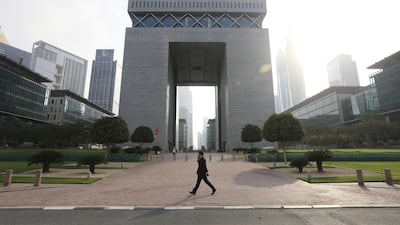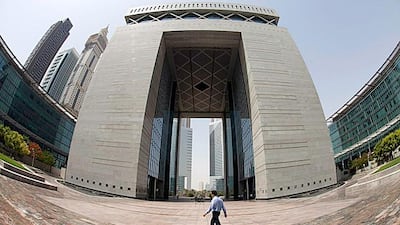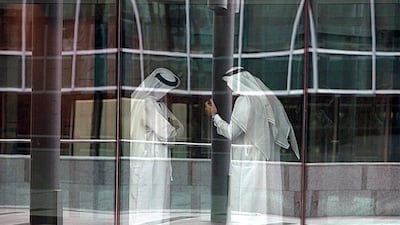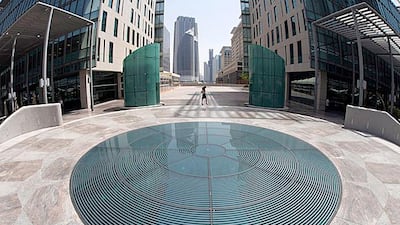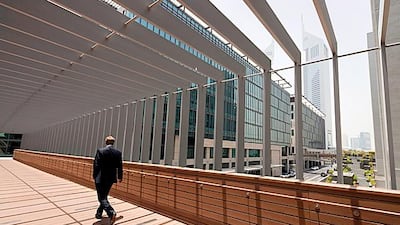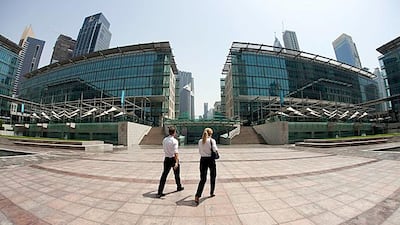Successful financial centres around the world will become more green, digital, inclusive and collaborative by 2030 in response to global macroeconomic challenges that require sustainable funding, according to research by the Dubai International Financial Centre.
Global financial centres will also play a critical role in drawing and retaining the best talent by offering attractive working environments, the emirate's financial free zone said on Sunday.
Challenges such as changing demographics, the need for sustainable financial growth and the Fourth Industrial Revolution will drive the change, the research — produced by the DIFC in collaboration with the World Alliance of International Financial Centres and London-based consultancy Z/Yen Group — found.
The paper “contains important recommendations that need to be converted into objectives that are best delivered through collaboration between financial centres”, said Arif Amiri, chief executive of the DIFC Authority.
“Embedding the deliverables will allow financial centres to increase their contribution to the global economy, while providing opportunities for clients to innovate, be more inclusive and sustainable.”
The paper was developed after the annual general meeting of the WAIFC last year, when senior representatives from financial centres worldwide gathered in Dubai to consider the role they play in supporting global economic growth, providing investment for businesses and enabling trade.
“The global financial industry is currently undergoing a dramatic wave of change that started during the financial crisis in 2008,” Jennifer Reynolds, chairwoman of WAIFC, said.
“Since then, rapid changes in technology, demand for sustainable finance and the pandemic continued to drive change. The pace of change will increase and financial centres must focus their priorities on becoming green, smart, innovative, customer-focused, digital and inclusive.”
DIFC's architecture — in pictures
International financial centres will be greener by providing incentives that prioritise a sustainable economy, reduce carbon emissions and promote green solutions, the research said.
They will be more digital by offering most services for residents via special platforms and apps. Global financial centres will also be more inclusive by ensuring that business services and regulation is fair and open to existing players and newcomers.
“Financial centre associations and leaders will have a key role in orchestrating talent, bridging gaps and sharing ideas with one another to enable the development of finance to address the needs of society,” the report said.
chief executive of the DIFC Authority
“Just as the clustering of financial services encourages innovation, so collaboration between financial centres will lead to improvements in the development of the world economy and its focus on sustainable outcomes.
However, international financial centres also face key challenges, including the issue of changing demographics amid a surge in growth of young populations, particularly in Sub-Saharan Africa, an ageing population in East Asia and Europe, as well as economic and forced migration, and a rapid rate of urbanisation.
Sustainability challenges include the risk posed by climate change and the need to transition to renewable energy.
The Fourth Industrial Revolution, with technological innovation and digital services, is also changing all aspects of life and business.
The report also questions whether geographic clusters will last in the post-pandemic era of hybrid work, which has been adopted by more companies globally.
“In structural terms, it remains to be seen whether the traditional idea of a geographic cluster of activity in a single location remains the most likely model of the future,” it said.
